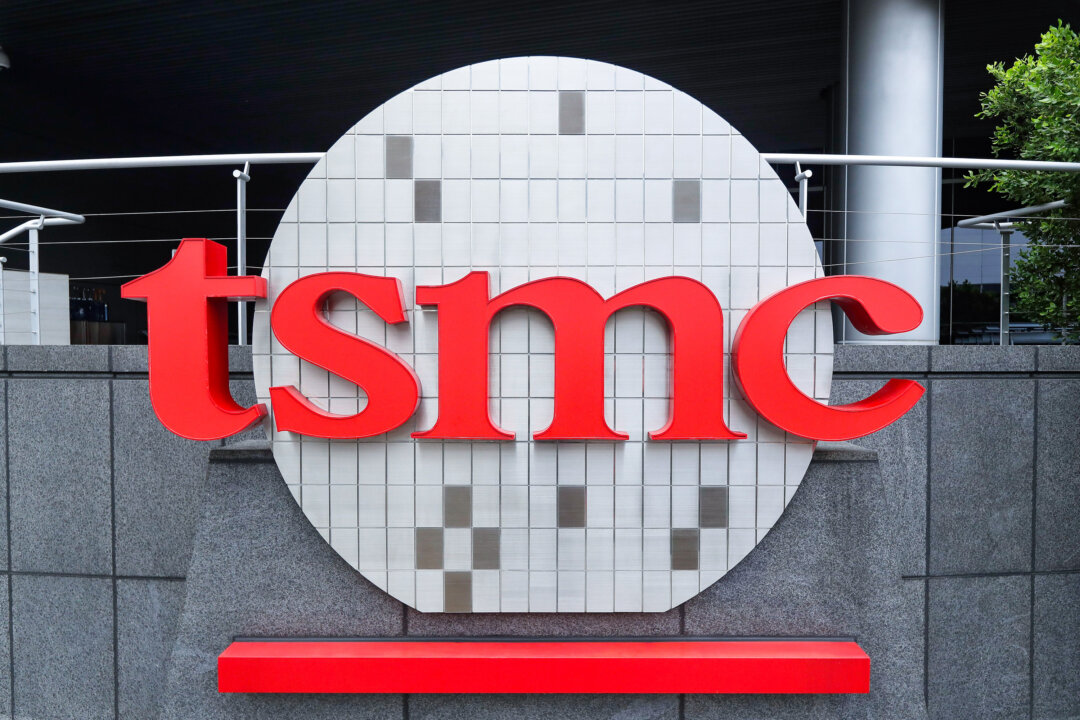The joint venture is expected to boost the EU’s semiconductor manufacturing capabilities.
The European Commission has approved a 5 billion euro (about $5.58 billion) German state aid package for TSMC’s first chip plant in Europe, European Commission President Ursula von der Leyen announced at the company’s groundbreaking ceremony in Dresden, Germany, on Aug. 20.
It’s part of the European Union’s drive to wean the bloc off semiconductors made in Asia, including by Taiwan Semiconductor Manufacturing Co. Ltd. (TSMC), the world’s biggest contract chip maker.
The new 10 billion euro (about $11.15 billion) company, named the European Semiconductor Manufacturing Company, is a joint venture between TSMC and European companies, including Robert Bosch, Infineon, and NXP, each of which has a 10 percent stake.
The state aid for the project is also the largest approved so far under the European Chips Act and is the first in Germany.
In a statement posted on social media platform X, German Chancellor Olaf Scholz welcomed TSMC’s arrival in Saxony, Germany, and Europe.
“Bosch, Infineon and NXP are already investing billions in the semiconductor industry with us—we are delighted that TSMC has also chosen us,” he wrote.
The plant will be the EU’s first foundry capable of using the FinFET process, according to a TSMC statement.
“With this state-of-the-art manufacturing facility, we will bring TSMC’s advanced manufacturing capabilities within reach of our European customers and partners, which will stimulate economic development within the region and drive technological advancements across Europe,” TSMC Chairman and CEO C.C. Wei said in a statement.
Speaking in Dresden, the heart of Germany’s “Silicon Saxony” chipmaking region, von der Leyen hailed the project as “a true win-win situation for all of us.”
“The world’s largest chip maker is coming to our continent and joining forces with three European champions. And the benefits will be felt well beyond Dresden and Saxony,” she said. “European workers will gain 11,000 new jobs both here and across our continent. European chips companies will gain access to new technologies and production capacities.”
According to TSMC and its three European partners, the new venture is expected to generate about 2,000 direct high-tech professional jobs and more indirect jobs throughout the EU supply chain.
Also speaking from Dresden, Scholz described semiconductors as “the fuel, the oil” of the 21st century, crucial for digitalizing and decarbonizing people’s lives.
“For Germany as an industrialized country, this is a key issue for the future,” he said.
The chancellor said the region manufactured one-third of chips made in Europe and welcomed the new plant.
Semiconductors, or microchips, are an essential component of modern technology, from cattle tags, smartphones, and cars to medical equipment, power stations, and weapon systems.
While the technology was born in the United States, most advanced semiconductors today are produced in Asia.
Concerns about semiconductor supply chain security were brought to the fore after a global shortage during the COVID-19 pandemic hit many industries, including the automotive sector. Geopolitical tensions—particularly anxieties over a potential Chinese invasion of Taiwan and Beijing’s ambition for technological dominance—have also accelerated countries’ efforts to boost domestic production, such as the U.S. CHIPS and Science Act and the European Chips Act.
Reuters contributed to this report.

